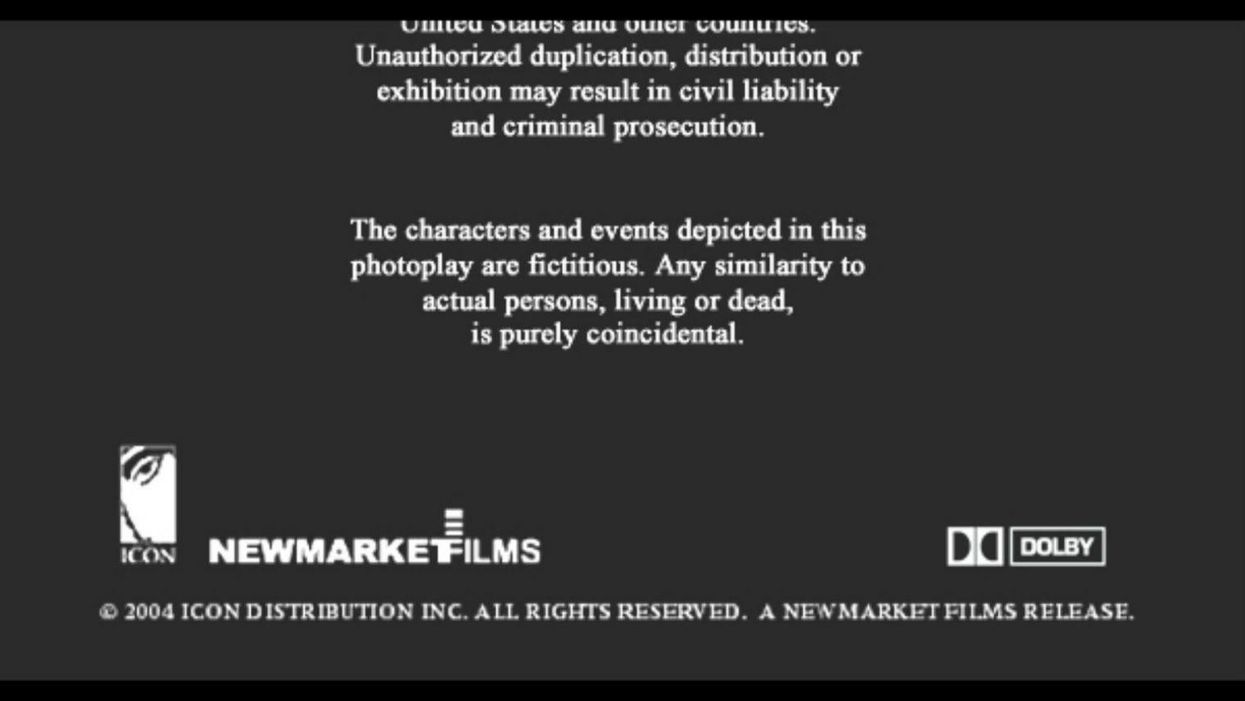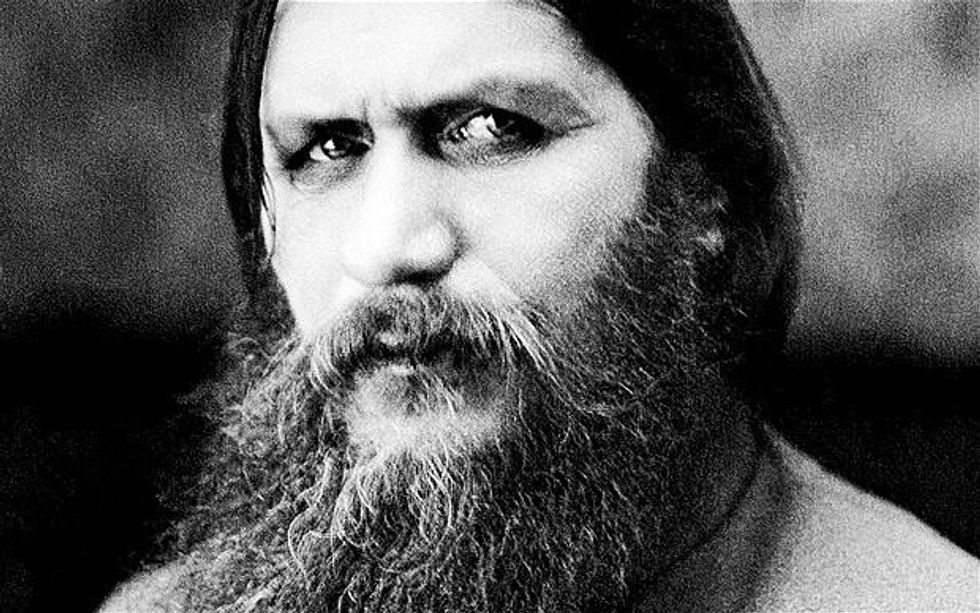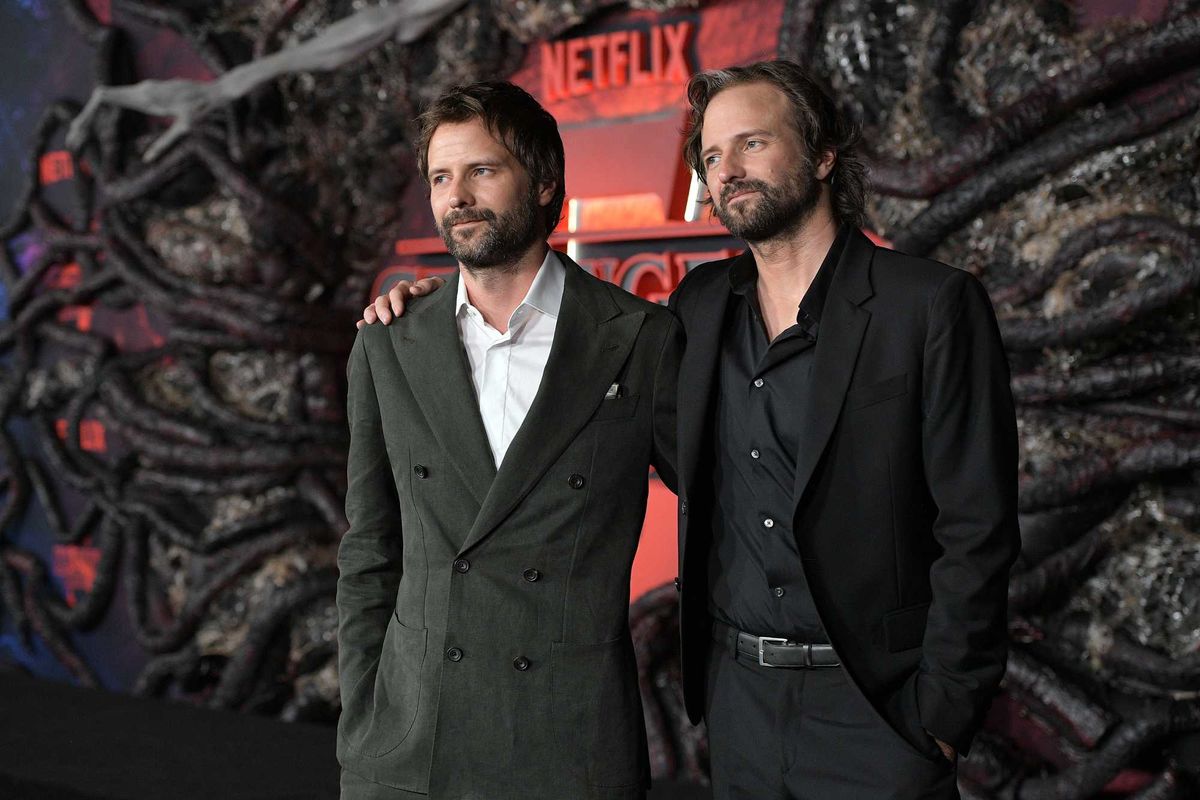Showbiz
Joe Vesey-Byrne
Aug 27, 2016

Picture: yodaman36/YouTube screengrab
Disclaimer: The following article is a work of indy100. The events depicted in this piece are not fictitious. Any similarity to any person living or dead is merely on purpose.
The words you read in a film disclaimer, could possibly be the words you read most often when inside a cinema.
As you can probably guess it's because of libel laws, but the original libel case that induced this title card is something out of legend. Before 1932 a disclaimer in a film was rare, if ever used. In that year, the film Rasputin and the Empress was released by MGM. Detailing the story of Russian occultist Grigori Rasputin's life and his relationship with the royal family, the film included a scene that showed his murder.
As legend would have it, the monk was killed by members of the Romanov dynasty because of his almost hypnotic hold over Czarina Alexandra. Allegedly Prince Felix Yusopov and others poisoned and shot Rasputin in 1916. Legend has it that it took several attempts to bring him down, and that he reanimated at certain moments, appearing to withstand the lethal attacks.
In the 1932 film, Yusopov was replaced by a composite character 'Chegodieff' whose wife in another scene of Rasputin and the Empress is raped by Rasputin. Yusopov, by then living as an exile in France, attempted to sue MGM because he claimed it was obvious that the character of 'Chegodieff' was evidently him, and by implicating him in the murder it would tarnish his reputation.
Yusopov had a slight problem with his libel case, in that he had boasted about killing Rasputin in his memoir, which he had entitled Lost Splendor: The amazing memoir of the man who killed Rasputin. However, due the inclusion of the character of 'Chegodieff's' wife, Yusopov was able to argue the case that his wife was defamed by the film.
During the case, the inclusion of a certain title card turned out to be the downfall of MGM.
This concerns the destruction of an empire… A few of the characters are still alive — the rest met death by violence.
It was because of this reference to still living characters that Yusopov won the case. His wife was awarded £25,000 by the High Court in London in 1934, and later another £75,000 in damages from MGM and other court proceedings begun at the same time in the United States. MGM lost even more money when they had to recall the film, and destroy all versions which contained the scene including Rasputin raping Chegodieff's wife.
As such, MGM, and all other film companies began to use the disclaimer in every film, regardless of how close to the truth or realistic the film happened to be. Until 2000, when the disclaimer title card was broadened to include references to piracy, the disclaimer usually read:
This is a work of fiction. Names, characters, places and incidents either are products of the author’s imagination or are used fictitiously. Any resemblance to actual events or locales or persons, living or dead, is entirely coincidental.
HT: Duncan Fyfe
More: Time to start making babies, South Korea urges its people
More: Man caught square-dancing tries to 'destroy the internet' out of embarrassment
Top 100
The Conversation (0)














